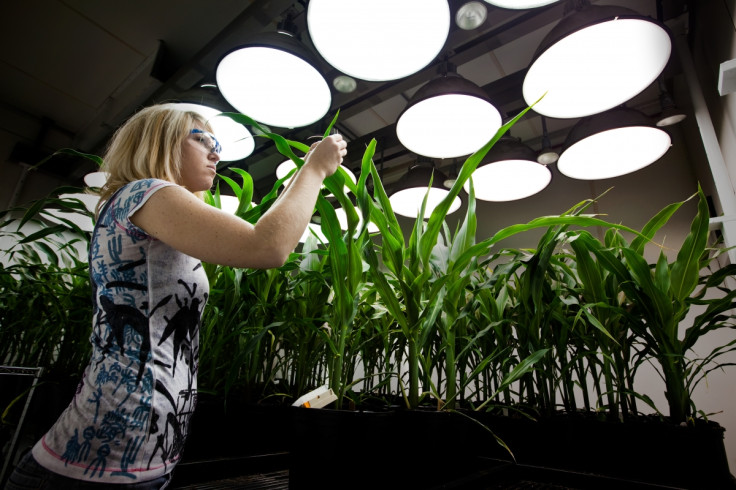Monsanto Roundup Weedkiller: Glyphosate approved for use by EU despite cancer fears
There are conflicting reports as to whether glyphosate is harmful to people.

Glyphosate, a potentially carcinogenic weedkiller chemical, has been given the go-ahead for continued use in the EU after European health commissioner Vytenis Andriukaitis granted it an extension.
The usage of glyphosate – most commonly found in products such as Monsanto's Roundup Weedkiller – was due to expire on Thursday (30 June 2016), but will now continue to be used for another 18 months.
Studies from the World Health Organisation, among others, suggest the product could cause cancer, leading environmental activists and health campaigners to ask for its use on food products to be discontinued.
The product was facing a recall from shops around Europe, but the decision gives Monsanto another 18 months before the European Chemical Agency rules on its usage in 2017.
The product has caused controversy, with scientists, campaigners and activists disagreeing on whether it could cause cancer, with strong advocates on both sides.
Heidi Chow, a food campaigner with Global Justice Now, said: "Extending the licence for glyphosate for 18 months means another 18 months of hundreds of thousands of tons of a 'probably carcinogenic' chemical being sprayed on our parks, our farms and in our gardens.
What is glyphosate?
Glyphosate is an herbicide used to kill plants and grasses. Registered for use in the US in 1974, the sodium salt of glyphosate is used to encourage fruit to ripen. It is used as a weedkiller in parks and gardens, and across the US and Europe. It also appears in a variety of other products.
"In many ways, the EU's decision on glyphosate is emblematic of the way the EU has often acted with disregard to ordinary people in Europe, and instead sided with the interests of corporate interests of agribusiness companies like Monsanto, who make enormous profits from products containing glyphosate. It's understandable that some people have voted to leave the EU because they feel it's an undemocratic institution."
Despite what many campaigners saw as a win for Monsanto, the company said it was disappointed by the decision to extend the product's use by just 18 months.
How can I avoid glyphosate?
The herbicide is most commonly found in the weed killer Roundup, as well as several others, that are used on GMO crops such as soy, cotton and corn. The best way to avoid the product is to choose organic foods that have not been sprayed with any pesticides.
Dr Philip W Miller, Monsanto's vice president of global regulatory and governmental affairs, said in a statement: "Today's decision by the European Commission to temporarily extend glyphosate's authorisation by 18 months ensures that European farmers, municipalities, gardeners and other users will continue to have access to the herbicide glyphosate while a longer-term solution to the product's reauthorisation is found.
"European farmers, municipalities, gardeners and other users have depended on glyphosate for 40 years as a safe, efficient and cost-effective tool for weed control. Glyphosate meets or exceeds all requirements for renewal under European law and regulation. The overwhelming majority of scientific evidence and the EU's own regulatory agencies have declared glyphosate safe for use.
"We join European farmers and other users in expressing concern over the recent rise of narrowly focused politics of self-interest, where national or partisan political imperatives take precedence over facts, scientific understanding and the interests of its citizens. Monsanto urges the European Commission to present without further undue delays a proposal for a full renewal under the regulatory framework."
© Copyright IBTimes 2025. All rights reserved.






















